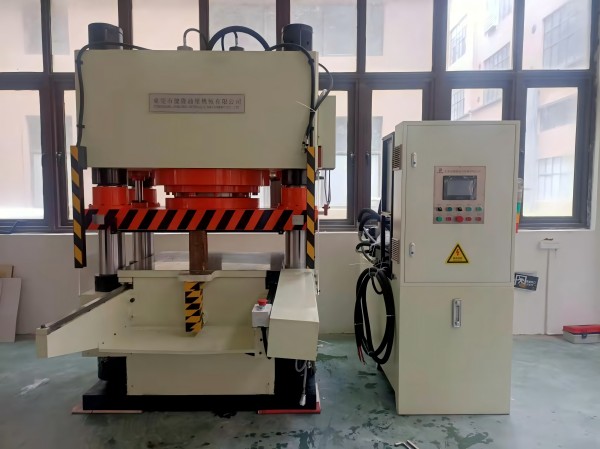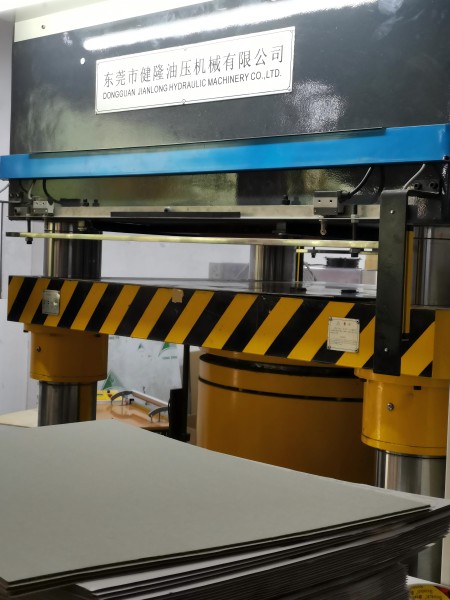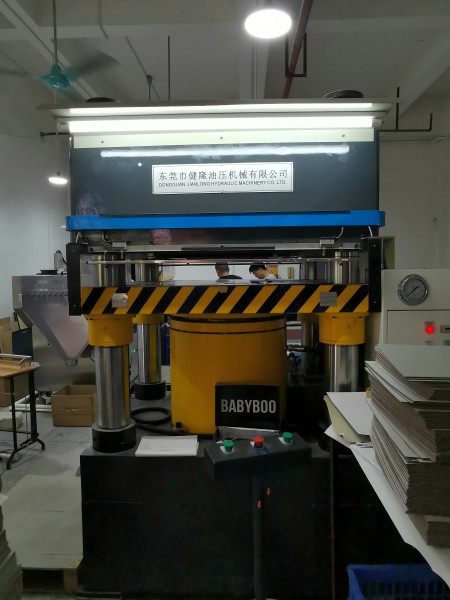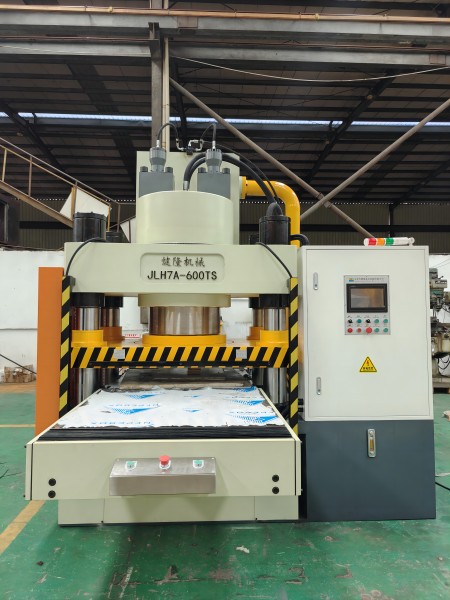Hydraulic filter blockage is one of the common faults in hydraulic systems, which usually leads to problems such as poor oil flow, insufficient system pressure or increased component wear. Understanding the causes of oil filter blockage and its treatment methods can effectively prevent and solve this problem and ensure the normal operation of the hydraulic press.

1. Main causes of oil filter blockage
1.1 Oil contamination: Hydraulic oil will be contaminated by external pollutants, internal wear substances in the system and other reasons during use. These pollutants accumulate in the oil filter and easily cause blockage. Common pollutants include metal particles, dust, fiber, paint shedding, etc.
1.2 Hydraulic oil deterioration: Hydraulic oil may be oxidized, emulsified or chemically decomposed after long-term use, producing colloid, carbon deposits and other sediments, which will clog the oil filter. Especially in high temperature and humid environments, the speed of hydraulic oil deterioration will accelerate.
1.3 Filter service life expires: Each oil filter has its specific service life. The filtering effect of the filter element will drop significantly after reaching the life limit, which is easy to cause blockage. If it is not replaced in time, the probability of oil filter blockage will greatly increase.
1.4 Internal wear of the system: The parts of the hydraulic press will wear out during long-term work, causing metal debris, rubber particles and other impurities to enter the oil. These impurities will accumulate in the oil filter and gradually cause blockage.
1.5 Unreasonable design of the oil filter: If the oil filter is improperly selected, the filtration accuracy is too high or too low, or the flow design is insufficient, it may cause the oil filter to be blocked prematurely during normal use.

2. Treatment of oil filter blockage
2.1 Regular inspection and replacement of filter elements
2.1.1 Regular maintenance: Develop a regular inspection and replacement plan for the filter element to avoid blockage caused by excessive use of the filter element. It is usually recommended to adjust the inspection cycle according to the operating time of the equipment and the severity of the working environment.
2.1.2 Replace the filter element: Once the filter element is found to be blocked, replace it immediately. When replacing, the filter element specifications recommended by the original manufacturer should be used to ensure the filtering effect and the normal operation of the hydraulic system.
2.2 Keep the oil clean
2.2.1 Regularly replace the hydraulic oil: Check and replace the hydraulic oil regularly, especially in high temperature or high load working environment, the hydraulic oil is more likely to deteriorate. Determine whether it needs to be replaced based on the oil test results.
2.2.2 Filter and refuel: When adding hydraulic oil, use a filter device to refuel to prevent contaminants from entering the hydraulic system.
2.3 Improve the sealing of the hydraulic system
2.3.1 Check the seals: Ensure that the various seals of the hydraulic press are in good condition to prevent external dust, moisture and other impurities from entering the system. Pay special attention to the seal of the oil tank and the protective device of the vent.
2.3.2 Repair the leaking parts: Repair the leaks in the hydraulic pipelines, joints, etc. in time to prevent impurities from entering the hydraulic oil.
2.4 Control the cleanliness of the working environment
2.4.1 Keep the working environment clean: Minimize dust and dirt in the working environment of the hydraulic press, especially in outdoor or dusty environments, and take necessary protective measures.
2.4.2 Prevent water intrusion: Ensure that the hydraulic system works in a dry environment to prevent water from entering the oil, causing emulsification and resulting in oil filter blockage.
2.5 Improve hydraulic system design
2.5.1 Rationally select the oil filter: Select the appropriate oil filter type and filtration accuracy according to the working characteristics of the hydraulic system. For systems with high precision requirements, you can consider installing a multi-stage filtration device to reduce the occurrence of blockage.
2.5.2 Add a bypass filtration system: Add a bypass filtration system to the system to share the burden of the main oil filter, thereby extending the service life of the filter element.

3. Emergency treatment after the oil filter is blocked
3.1 Stop the equipment operation: When it is detected that the oil filter is blocked and the oil flow is not smooth or the system is abnormal, the equipment should be stopped immediately to avoid further damage to the hydraulic system.
3.2 Replace the filter element or clean it: Replace the filter element or clean the oil filter according to the situation to ensure that the oil can flow normally. Especially when the oil is seriously contaminated,the entire hydraulic system should be cleaned and maintained.
3.3 Check the system: After dealing with the blockage, check the hydraulic system thoroughly to ensure that there are no other problems, such as whether the oil pump, valves, pipelines and other components are operating normally.

The blockage of the hydraulic filter is often the result of oil contamination or filter aging. Through regular maintenance, cleaning of hydraulic oil, selection of suitable oil filters, and maintaining the sealing of the system, the occurrence of oil filter blockage can be effectively prevented. At the same time, once blockage occurs, timely treatment and replacement of the filter element are key measures to ensure the safe operation of the hydraulic system. If you have any questions about the above information or need more detailed information, please feel free to let us know and we will serve you wholeheartedly.
Contact: Jessie
Phone: 18988729072
E-mail: lifuyan45@gmail.com
Whatsapp:+8618988729072
Add: Guangyi Industrial Park, No.2 Jinfu West Road, Tanglip, Liaobu Town, Dongguan City, Guangdong Province, China
We chat
